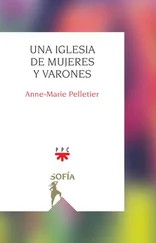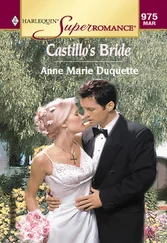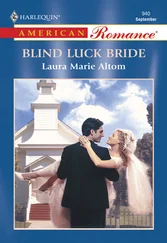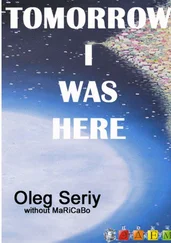In a few months, six hundred miles away, Liverpool will almost win the English Premier League. In one of the last matches they will be leading 3–0 against Crystal Palace, but in eight surreal minutes they will let in three goals and lose the League title. No one in Liverpool will ever know anything about Borg, they won’t even know the place exists, but no one who drives down this road with their windows rolled down will be able to avoid hearing the whole thing as it happens.
Manchester United fire their manager and start again. Tottenham promise that next season will be better. Somewhere out there, people can still be found who support Aston Villa.
It’s January now, but spring will come to Borg. A young man will rest beside his mother in a churchyard under a blanket of scarves; two children will fall over themselves to deplore useless referees and pathetic sliding tackles. A ball will come rolling and a foot will kick it, because this is a community where no one knows how not to. A summer will come when Liverpool loses everything, and then autumn will arrive and along with it a new season, when they have another chance to win everything. Soccer is a mighty game in that way, because it forces life to go on.
Borg is exactly where it is. Where it has always been. Borg is a place by a road that exits in two directions. One direction home and one to Paris.
If you merely drive through Borg it’s easy to notice only the places that have been closed down. You have to slow down to see what’s still there. There are people in Borg. There are rats and walkers and greenhouses. Wooden fences and white jerseys and lit candles. Newly laid turf and sunny stories. There’s a florist where you can only buy red flowers. There’s a corner shop and a car mechanic and a postal service and a pizzeria where the TV is always on whenever there’s a match, and where it’s no shame to buy on credit. There isn’t a recreation center anymore, but there are children who eat bacon and eggs with their new coach and her dog in a house with a balcony, in a living room where there are new photos on the wall. There are marginally fewer “For Sale” signs along the road today than there were yesterday. There are grown men with beards and caps who play soccer in the beams of headlights from old trucks.
There’s a soccer pitch. There’s a soccer club.
And whatever happens.
Wherever she is.
Everyone will know Britt-Marie was here.
Neda. The greatest blessing in life is to be able to share it with someone who’s much smarter than oneself. I’m sorry you’ll never get to experience that, it really is unbeatable. Asheghetam . Sightseeing.
Jonas Axelsson. My publisher and agent, who never loses sight of the fact that I am still a beginner, and that his foremost task is to help me get better at writing. Niklas Natt och Dag, who, in his texts and his respectful artistry, reminds me every day that this is a privilege. Céline Hamilton and Agnes Cavallin at Partners in Stories, where a large houseful of competence is slotted into the walls of a fairly small house; using equal parts of brain and heart they have kept this project on course. It wouldn’t have worked without you. Karin Wahlén at Kult PR, who got it from day one. Vanja Vinter, grammatical elite soldier and uncompromising, outstanding proofreader, editor, and critic, although her cutlery drawer is one prolonged disappointment. Nils Olsson, who patiently, sensitively, and with great love, has designed three fantastic book covers. Andrea Fehlauer, who stepped in as the editor of key sections of the book, bringing both his experience and his precision to the task, and without a doubt improving the book as a result.
The readers of my blog, who were there from the very start. All this is actually mostly your fault.
Torsten Wahlund, Anna Maria Käll, and Martin Wallström, who recorded my stories as audio books and gave voices to my characters in ways I did not think possible. They are more yours than mine now. Julie Lærke Løvgren, who has overseen the publication of my books internationally. Judith Toth, who got me there. Siri Lindgren at Partners in Stories, who makes sure the boat does not capsize when Jonas refuses to sit still in it. Johan Zillén. First in, last out.
Everyone who was and still is involved in my books at Forum, Månpocket, Bonnier Audio, and Bonnier Rights. Especially John Häggblom, without whose help I would not be here today. Liselott Wennborg, the editor of Saker min son behöver veta om världen [ Things My Son Needs to Know about the World ]. Adam Dahlin, who saw the potential. Sara Lindegren and Stephanie Tärnqvist, who have always been far more patient with me than I deserve.
Natur och Kultur, who have given us their support, especially Hannah Nilsson and John Augustsson.
Pocketförlaget and A Nice Noise, who believed in all this.
All who have reviewed, written about, blogged, tweeted, Facebooked, Instagrammed, and spoken about my books. Especially those of you who really did not like them, and took your time to rationally and instructively explain why. I can’t promise that I became a better writer as a result, but at least you forced me to think. I don’t think that can be a bad thing.
Lennart Nilsson in Gantofta. The best football trainer I ever had.
Most of all, thanks to all of you who read my books. Thanks for your time.
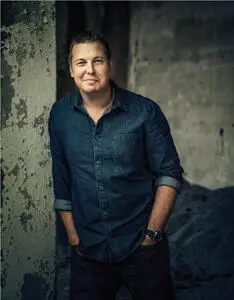
FREDRIK BACKMAN’s previous novels, A Man Called Ove and My Grandmother Asked Me to Tell You She’s Sorry , were both number-one bestsellers in his native Sweden and are being published in more than twenty-five countries. He lives in Stockholm with his wife and two children.
![Fredrik Backman Britt-Marie Was Here [Britt-Marie var här] обложка книги](/books/61260/fredrik-backman-britt-marie-was-here-britt-cover.webp)



